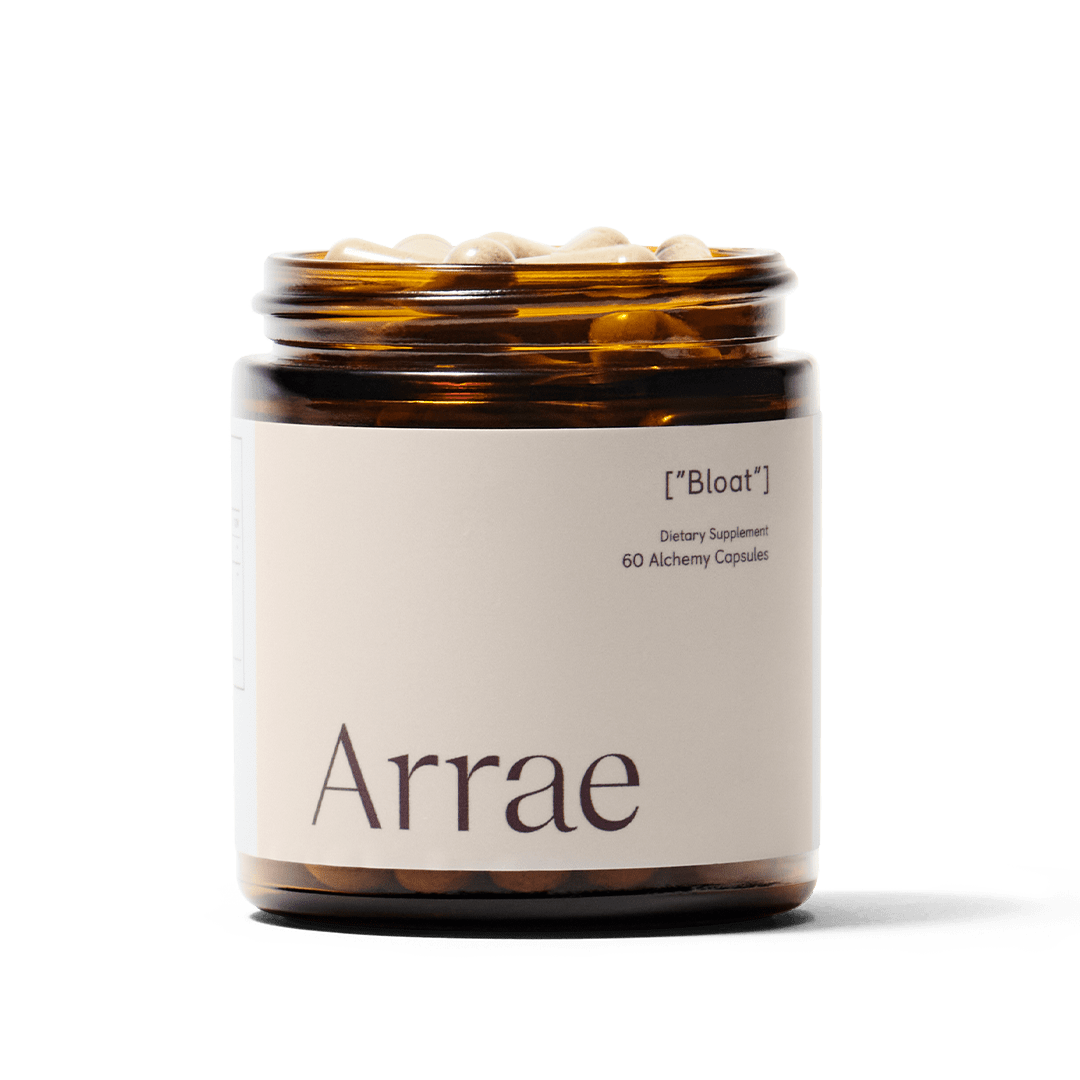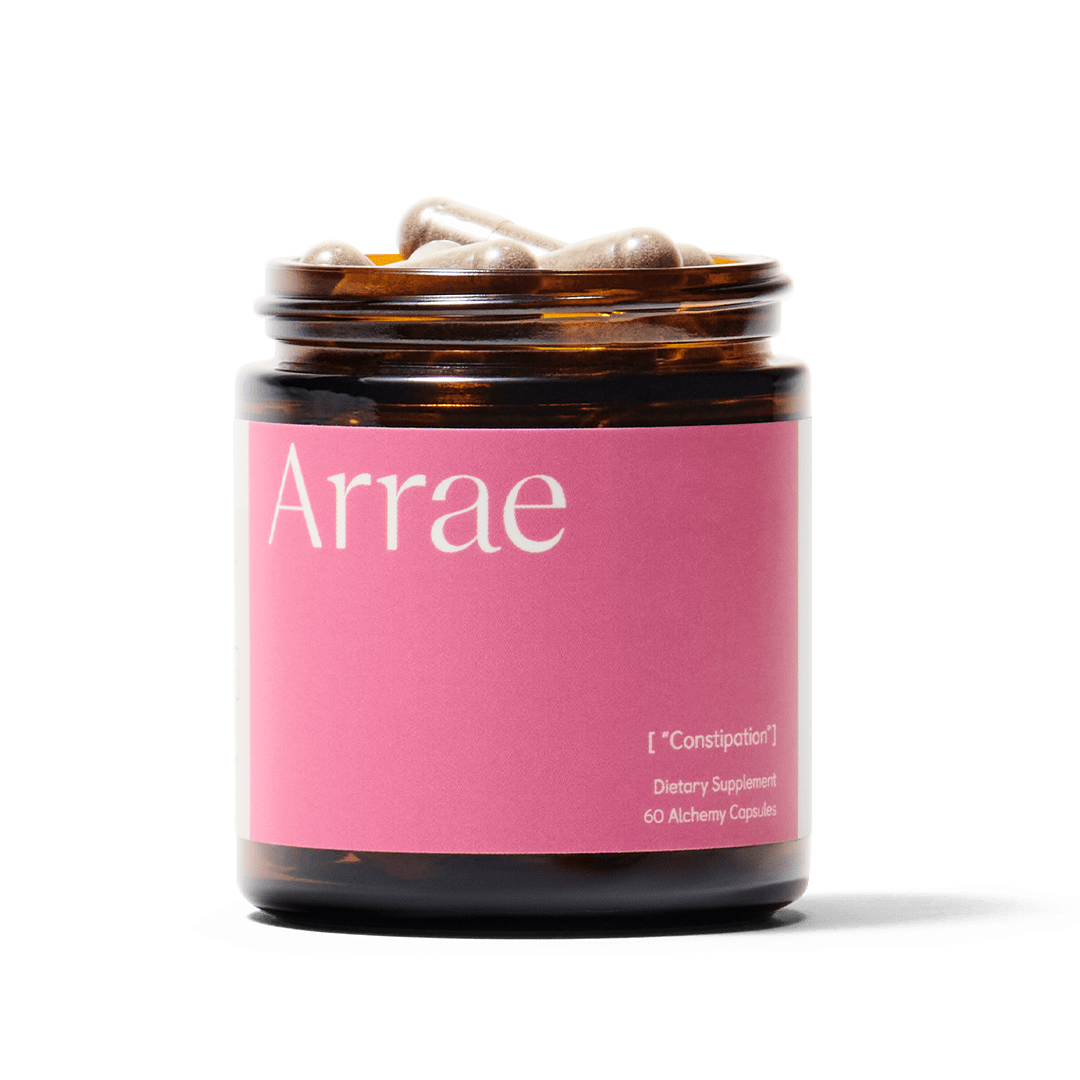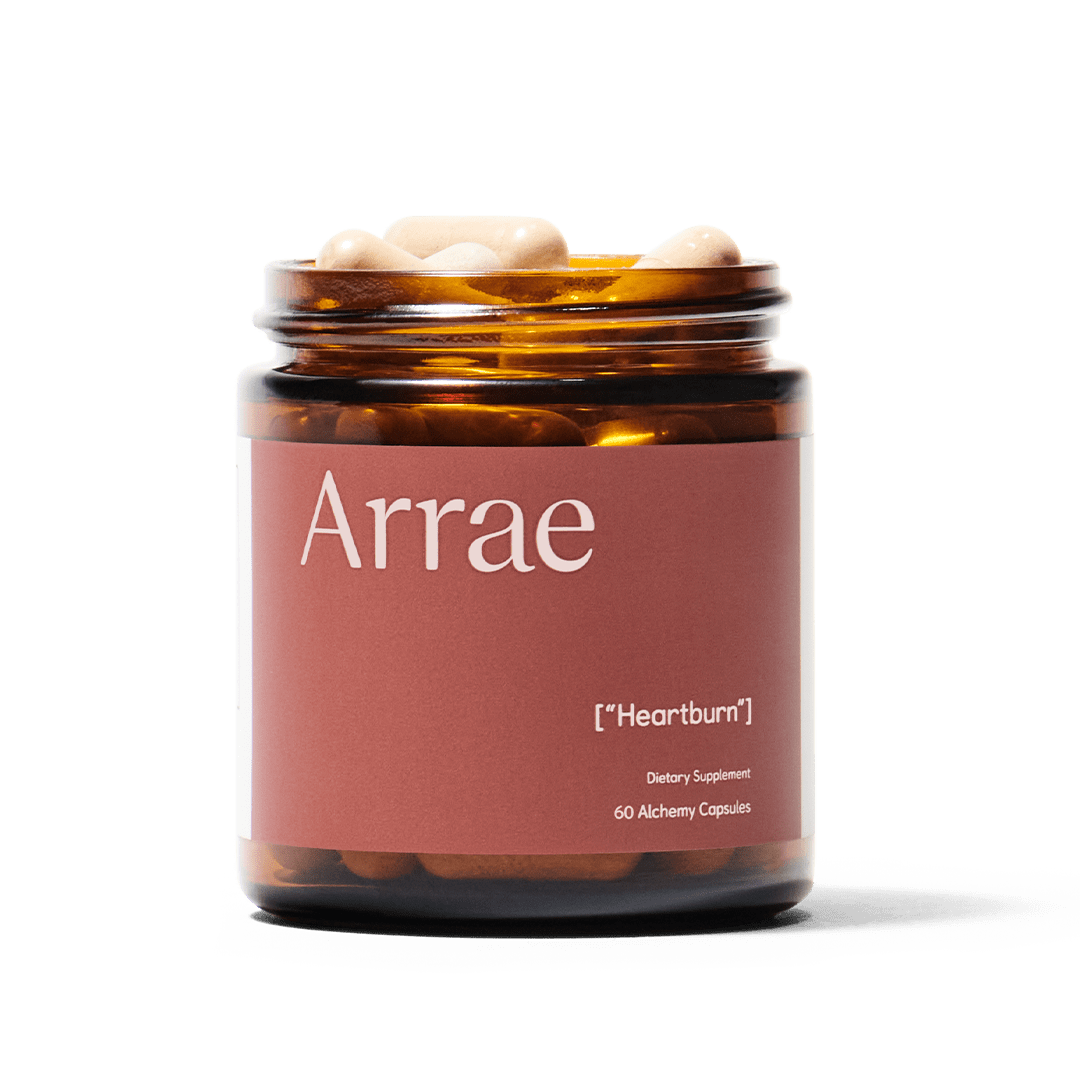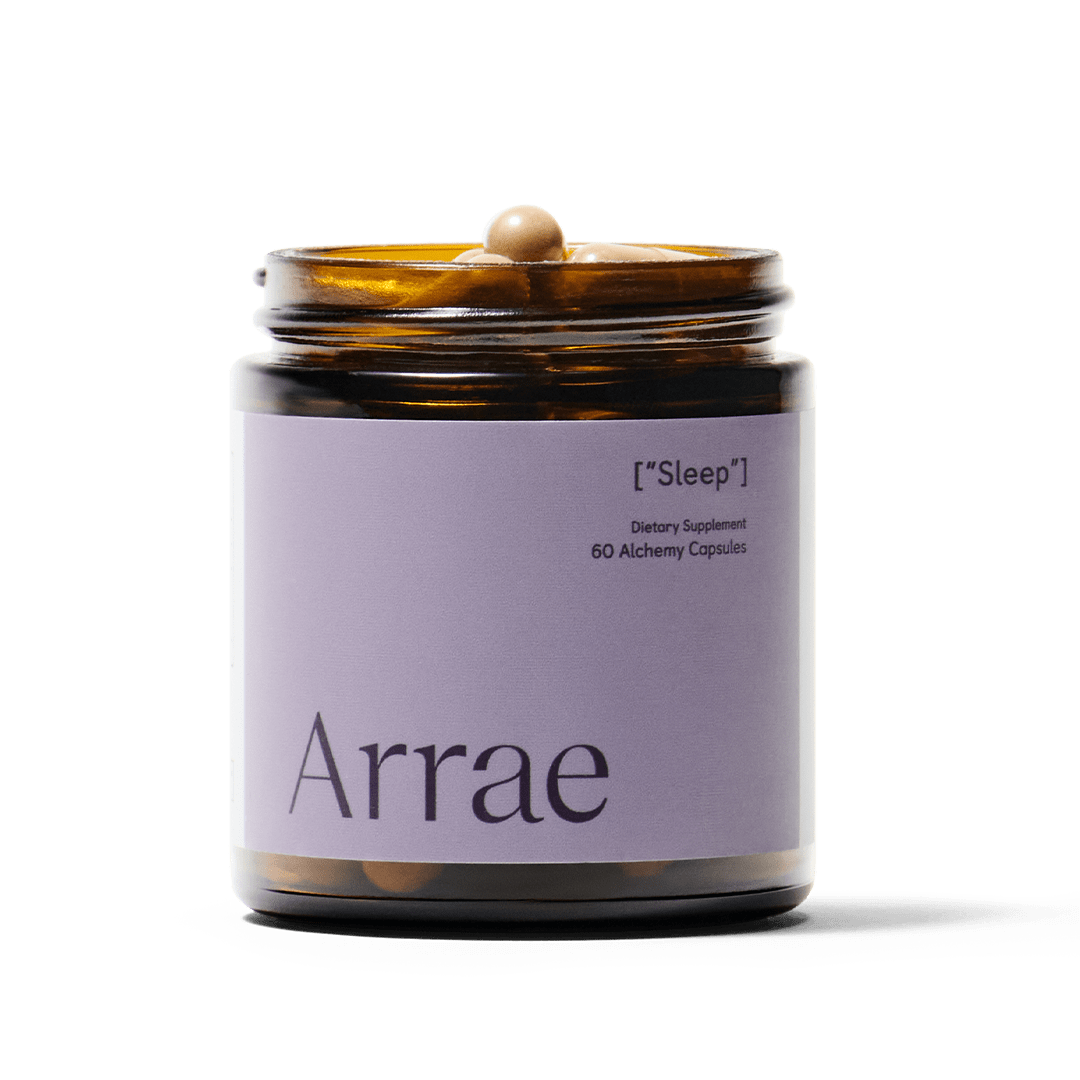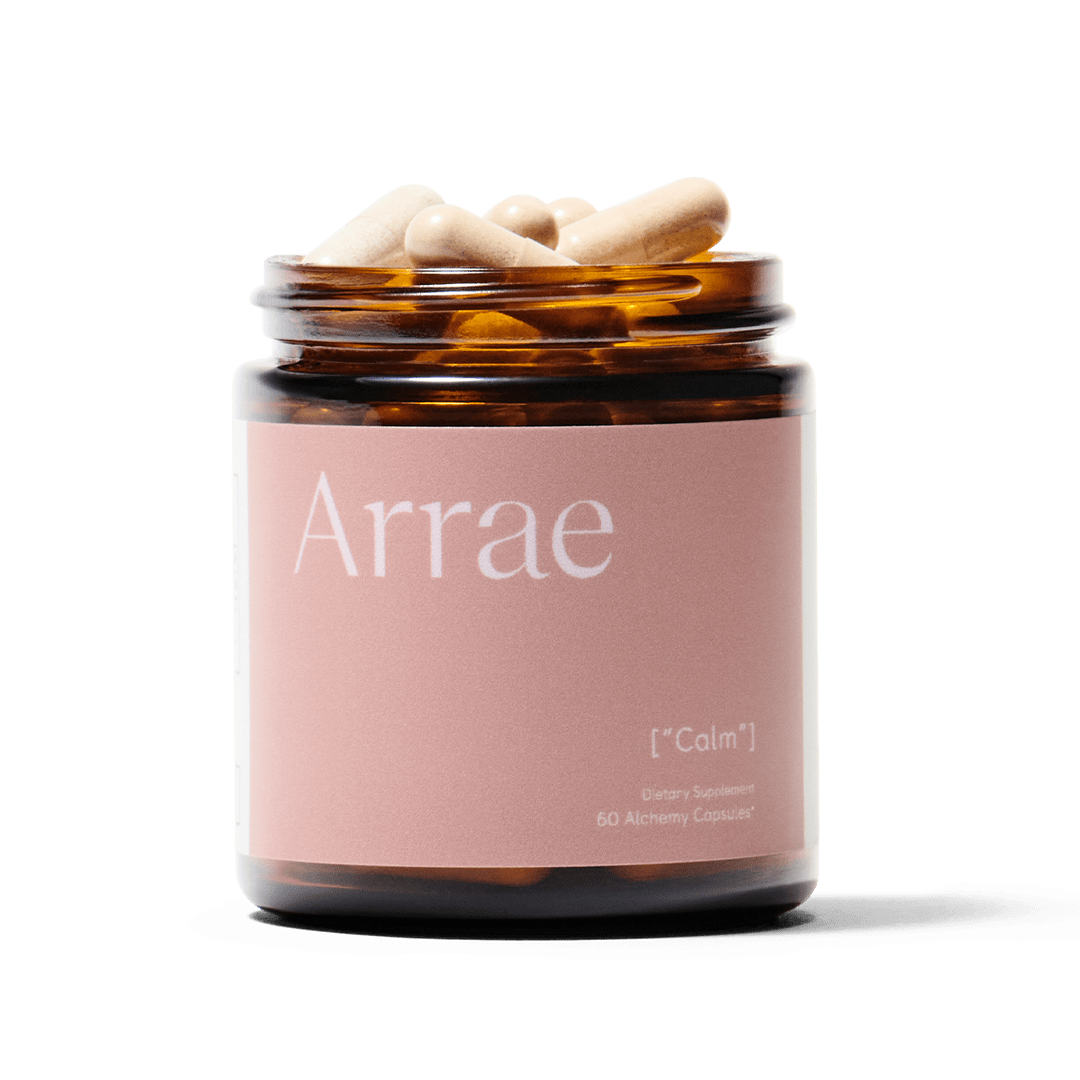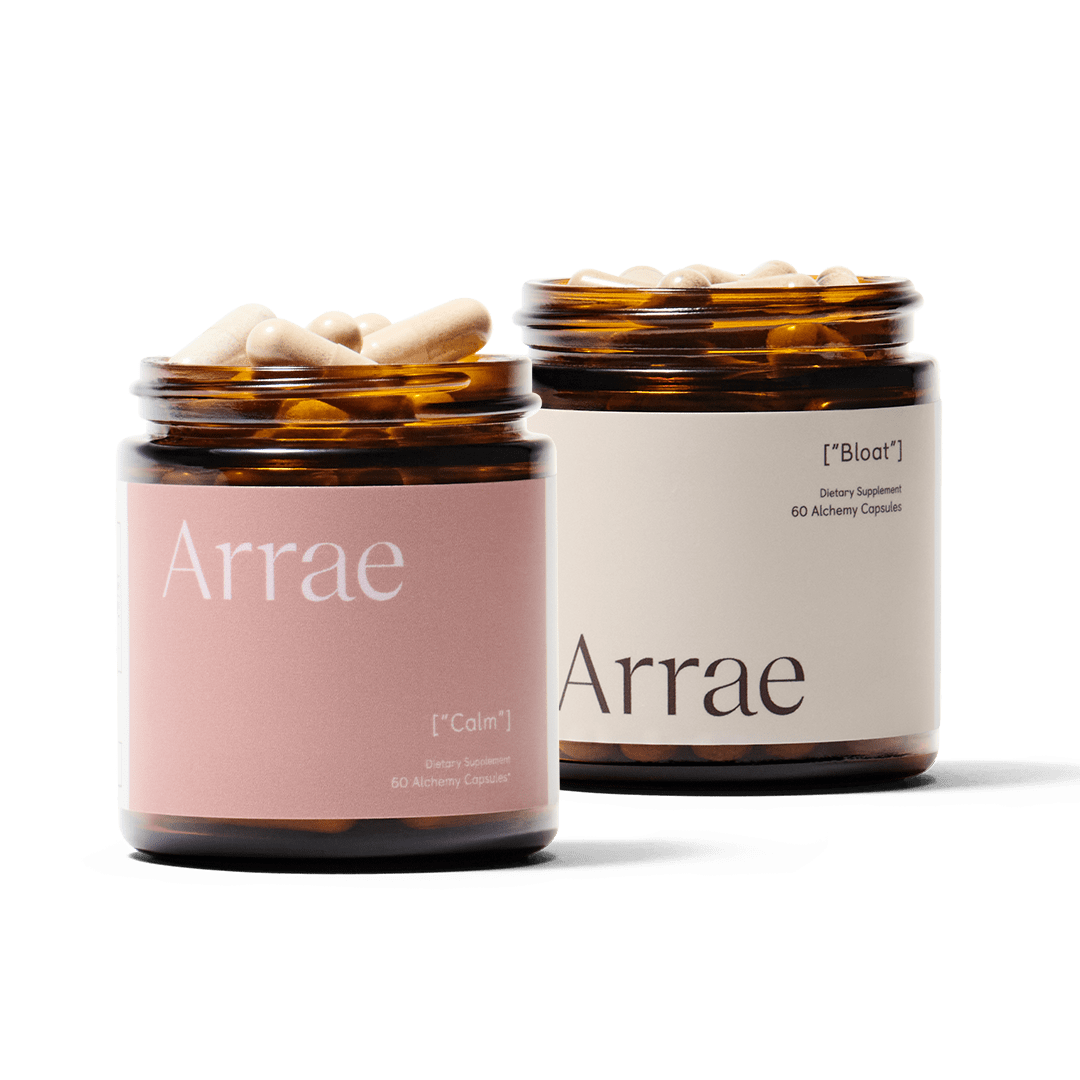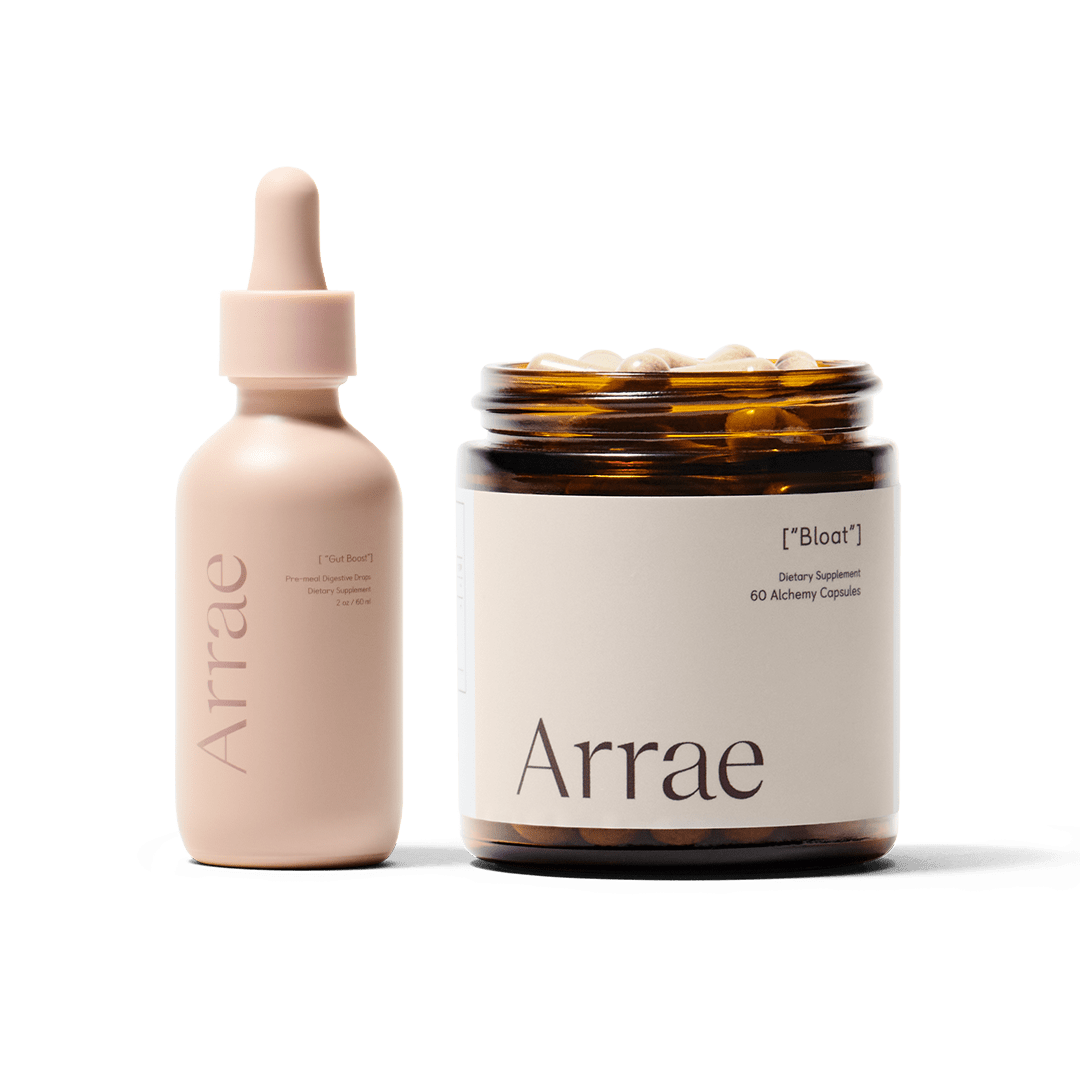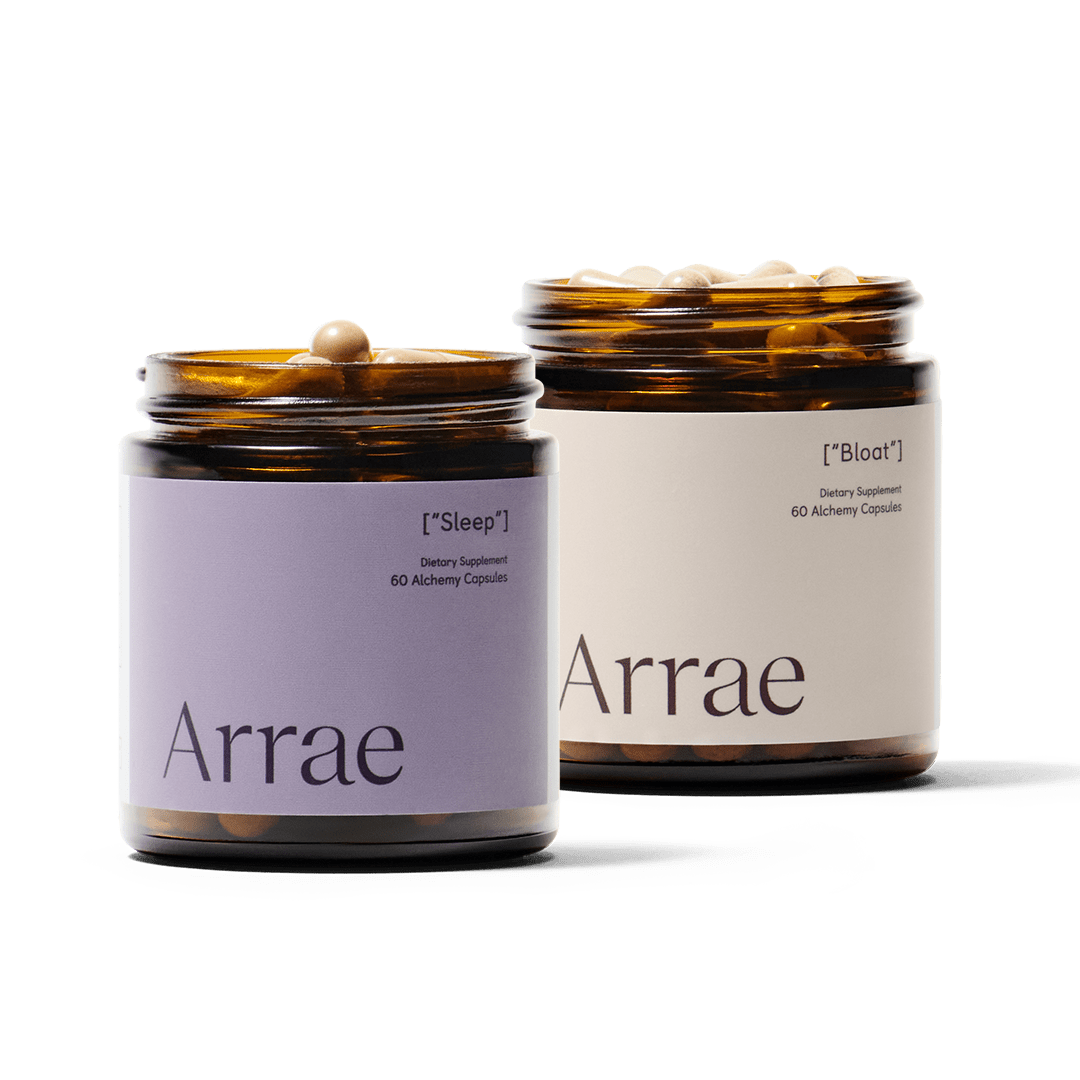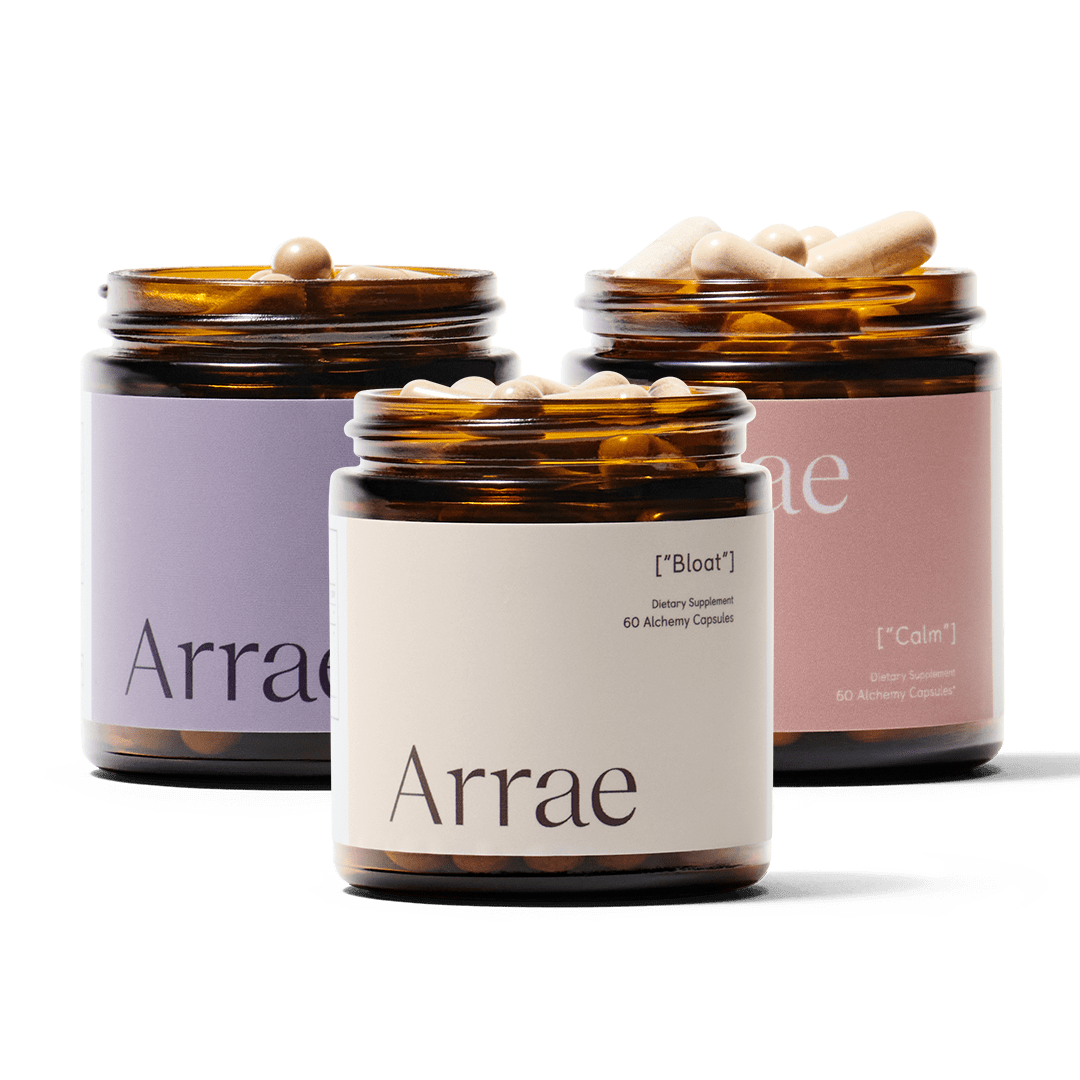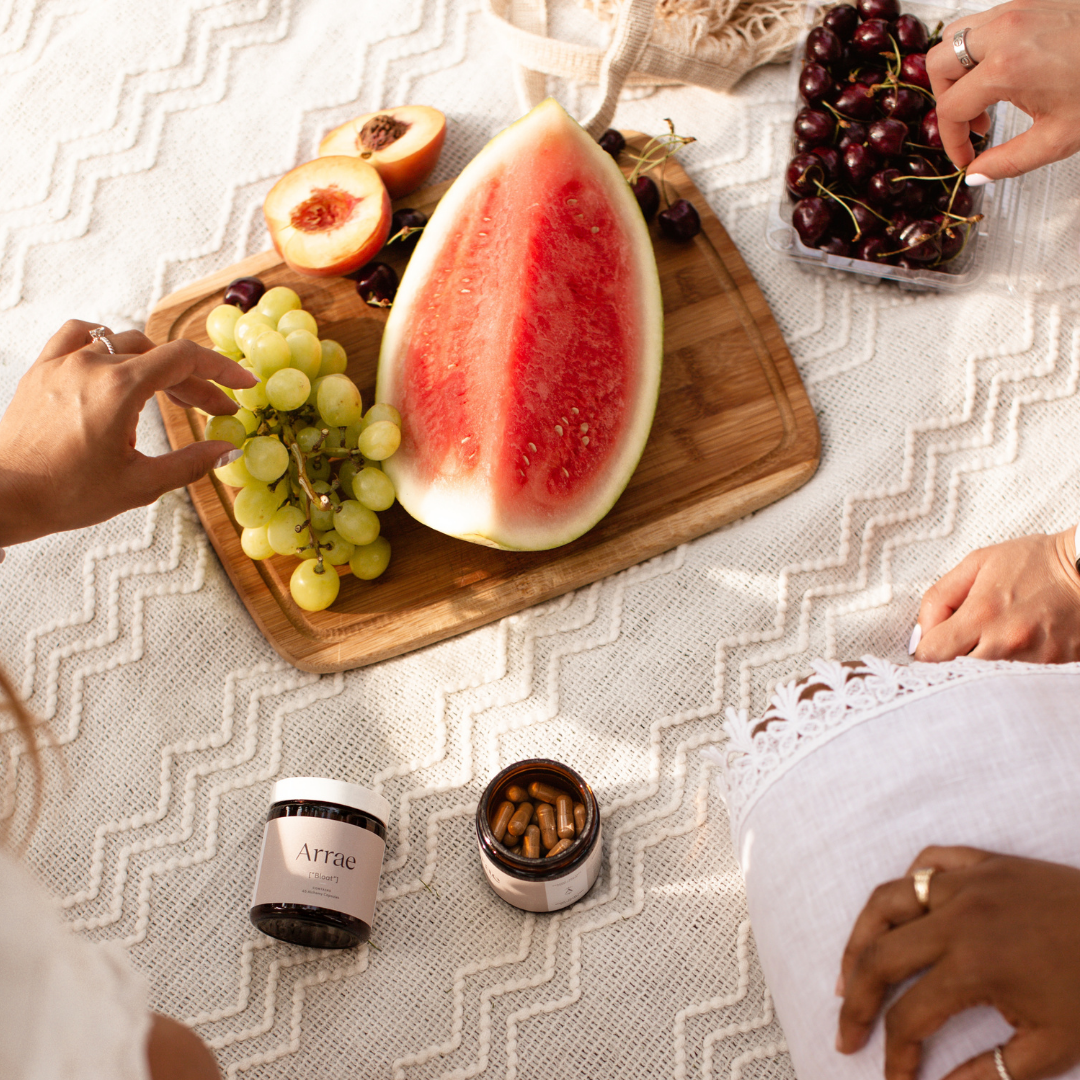
By now, we know that one of the pillars of optimal overall health is having a healthy gut. This can seem difficult; with the abundance of foods in the grocery store, Uber Eats in the palm of our hands, and an overwhelming amount of recipes on Instagram - where do we even start?
One of the best ways to ensure good gut health–and fullness too!–is to approach grocery shopping with a comprehensive list of gut-friendly foods. That way, snacking and cooking can be made easier and way more fun, while still nourishing your gut with delicious foods. Leave bloating and its unwelcome symptoms behind, and tackle your next grocery shop experience like a pro.
Vegetables
Veggies are high in both essential nutrients and friendly fiber. Cruciferous vegetables, like broccoli and cauliflower, contain a bioactive compound known as sulforaphane, which has been found to lower inflammation, support liver function, improve natural detoxification processes within the body, and improve digestion. When eating, aim to fill half (or more!) of your plate with some of the following:
- Artichokes
- Asparagus
- Broccoli
- Brussels sprouts
- Cauliflower
- Celery
- Cucumber
- Mushrooms
- Zucchini
Fruits
Nature’s candy can also have great benefits for our gut. Fruits, like veggies, contain lots of fiber and compounds that feed our good gut bacteria.
- Apples
- Bananas
- Blueberries
- Cranberries
- Goji berries
- Grapefruit
- Pears
- Persimmons
- Pomegranates
Whole Grains
Whole grains contain fiber, and they also aid in lowering our blood sugar spikes after eating. High blood sugar can lead to poorer digestion, along with other various health issues such as diabetes.
- Buckwheat
- Farro
- Millet
- Quinoa
- Rice (especially brown and wild)
Beans and Legumes
Beans and legumes enhance gut health by improving intestinal functioning as well as providing fuel for our gut microbiome. This can be crucial in lessening symptoms of GI disorders and further preventing gut-related diseases.
- Black beans
- Garbanzo beans
- Lentils
- Kidney beans
Herbs and Spices
Herbs and spices provide antioxidants and can decrease inflammation while supporting a healthy gut and decreasing abdominal cramps. Teas are a great way to get the benefits of these, decreasing bloatand decreasing stress, all at once.
- Basil
- Cilantro
- Cinnamon
- Dandelion tea
- Garlic
- Ginger
- Parsley
- Peppermint tea
- Turmeric
Probiotic Foods
Probiotics are live bacteria that live in our gut and are naturally occurring in some foods. Consuming probiotics is beneficial for feeding this good bacteria, optimizing digestion and lessening bloat.
- Greek yogurt
- Kefir
- Kimchi
- Sauerkraut
Healthy Fats and Proteins
Omega-3s have various beneficial effects: they optimize our brain and heart health, but they also play a key role in a healthy, happy gut. Research has shown that the anti-inflammatory properties in these essential fatty acids can alter the gut microbiome in a positive way. Better yet, dietary fats and proteins promote fullness, maintaining a healthy blood sugar balance.
Plant Sources
- Almonds
- Avocados
- Avocado oil
- Chia seeds
- Coconut oil
- Flaxseed
- Ghee
- Macadamia nuts
- Olives
- Olive oil
- Walnuts
Meat and Fish
Make sure to look out for ethically sourced animal proteins; farming practices that involve ethical ways of caring and raising the animals considers the wellbeing and welfare of the animals who are producing the products we eat.
Pasture raised meats contain three times the Omega-3s and 50% more vitamin A, D, and E. Pasture raised chickens eat a varied diet and are given access to fresh air, sunlight, and movement. Making dietary choices that involve these meats roots us in having a sense of ethical accountability when making our food choices.
Wild caught fish are caught in their natural environments. They have a more diverse diet than farm-raised alternatives and are given the ability to move freely throughout the water. Although wild caught fish may be more expensive, the fish is leaner and therefore healthier, making it a better choice.
- Bone broth
- Pasture raised eggs
- Pasture raised chicken
- Wild caught salmon
Pantry Items
- Apple cider vinegar
- Nut butters (almond, cashew, peanut)
With this list (although not exhaustive), it’s important to be aware of our own lifestyles and to buy and eat the foods we actually enjoy! Expanding our diets to include some of these foods can take some experimentation, but everything can be delicious when prepared the right way. Say hello to great gut health and, while you’re at it, try out some tasty new recipes using these foods.
Disclaimer: This blog post is purely informational and does not imply any evaluation by the Food and Drug Administration. This blog post is not intended to diagnose, treat, cure, or prevent diseases, nor should it substitute for advice from a healthcare professional.


